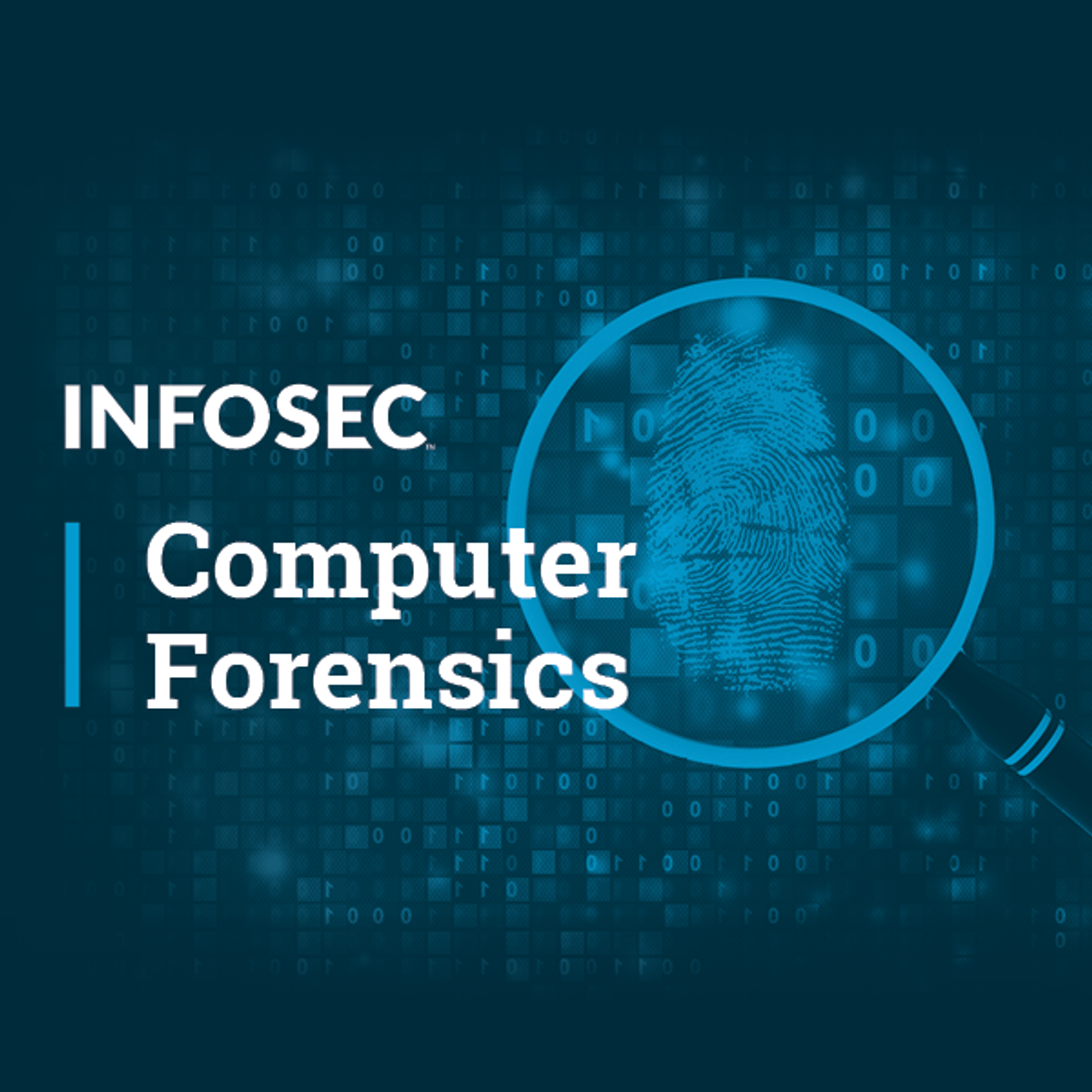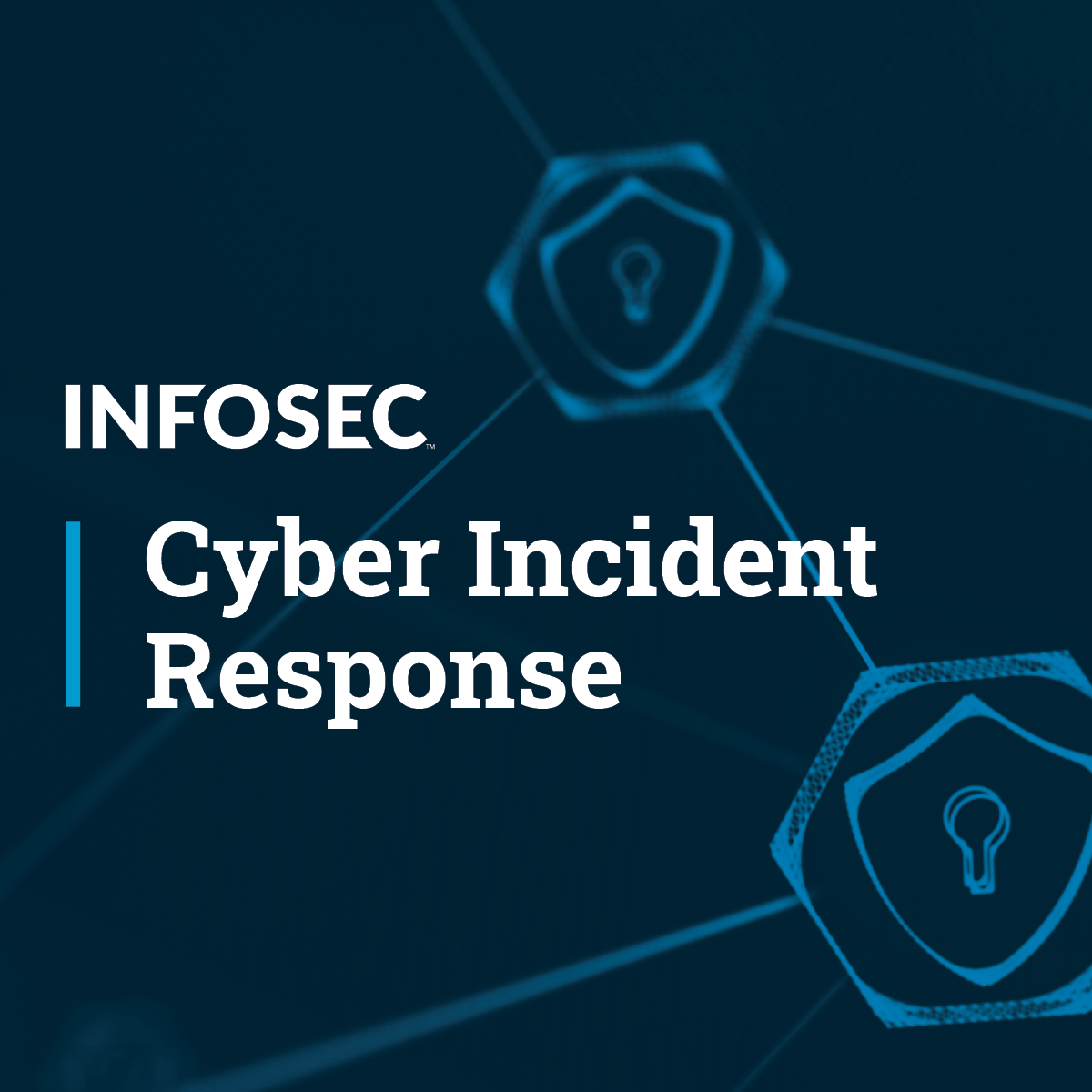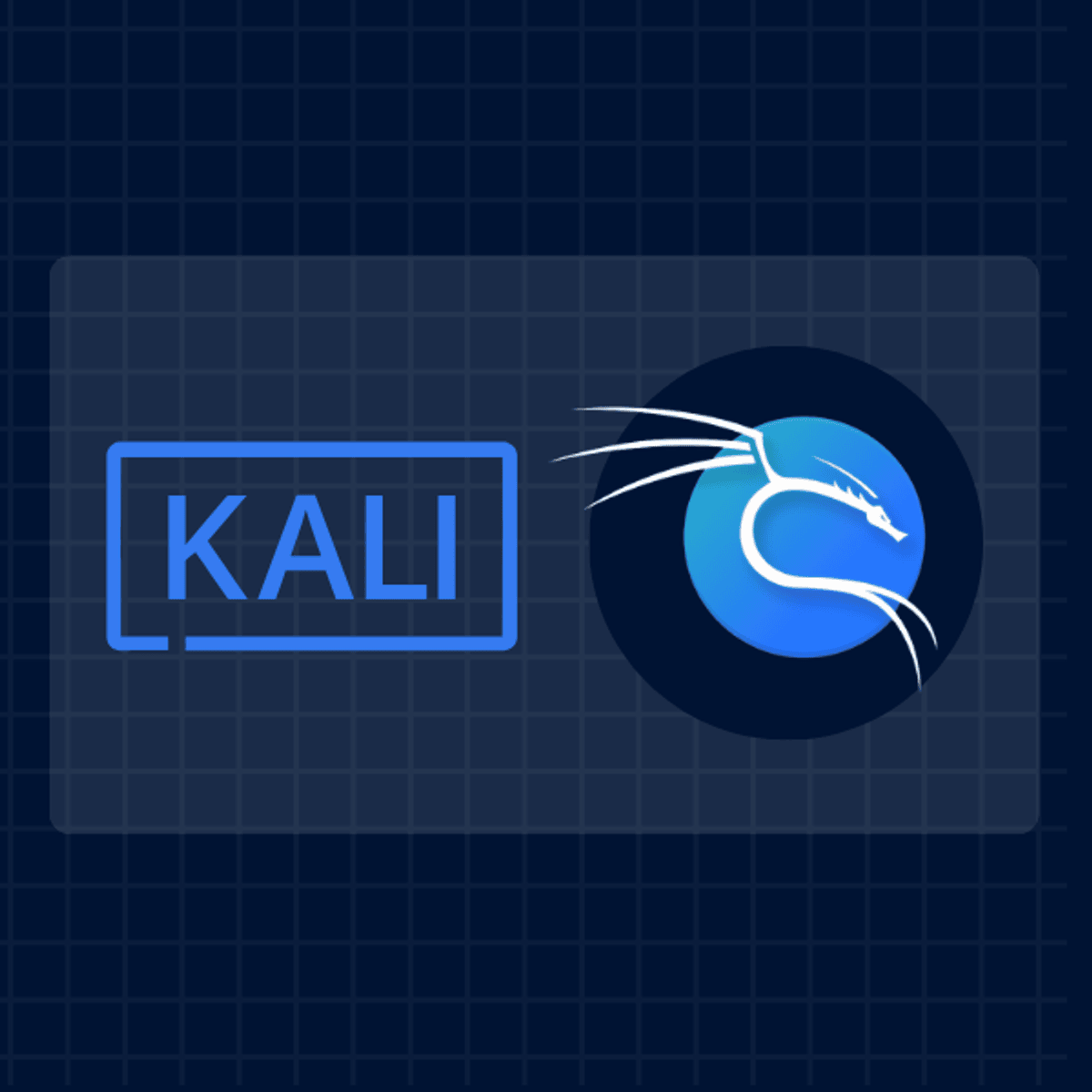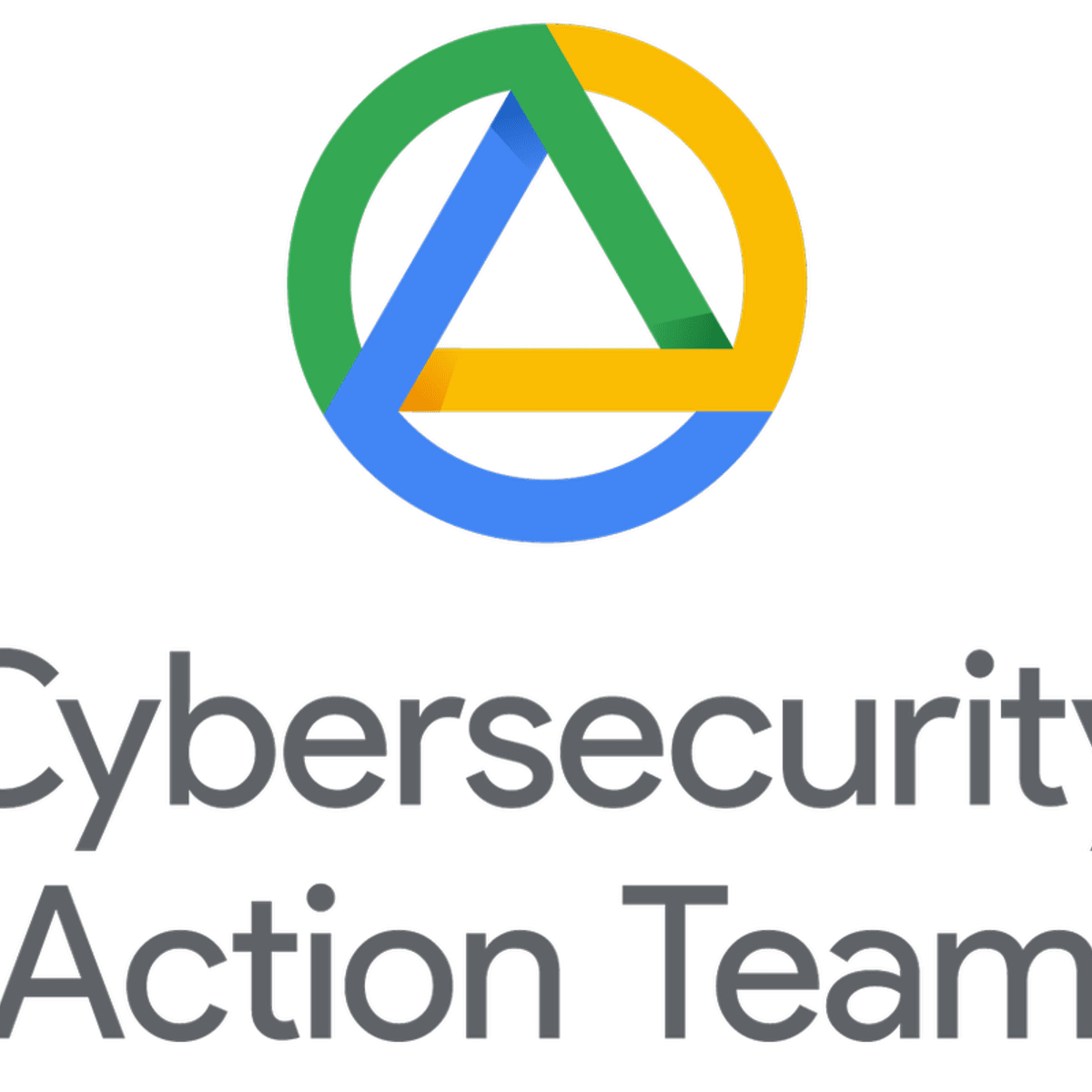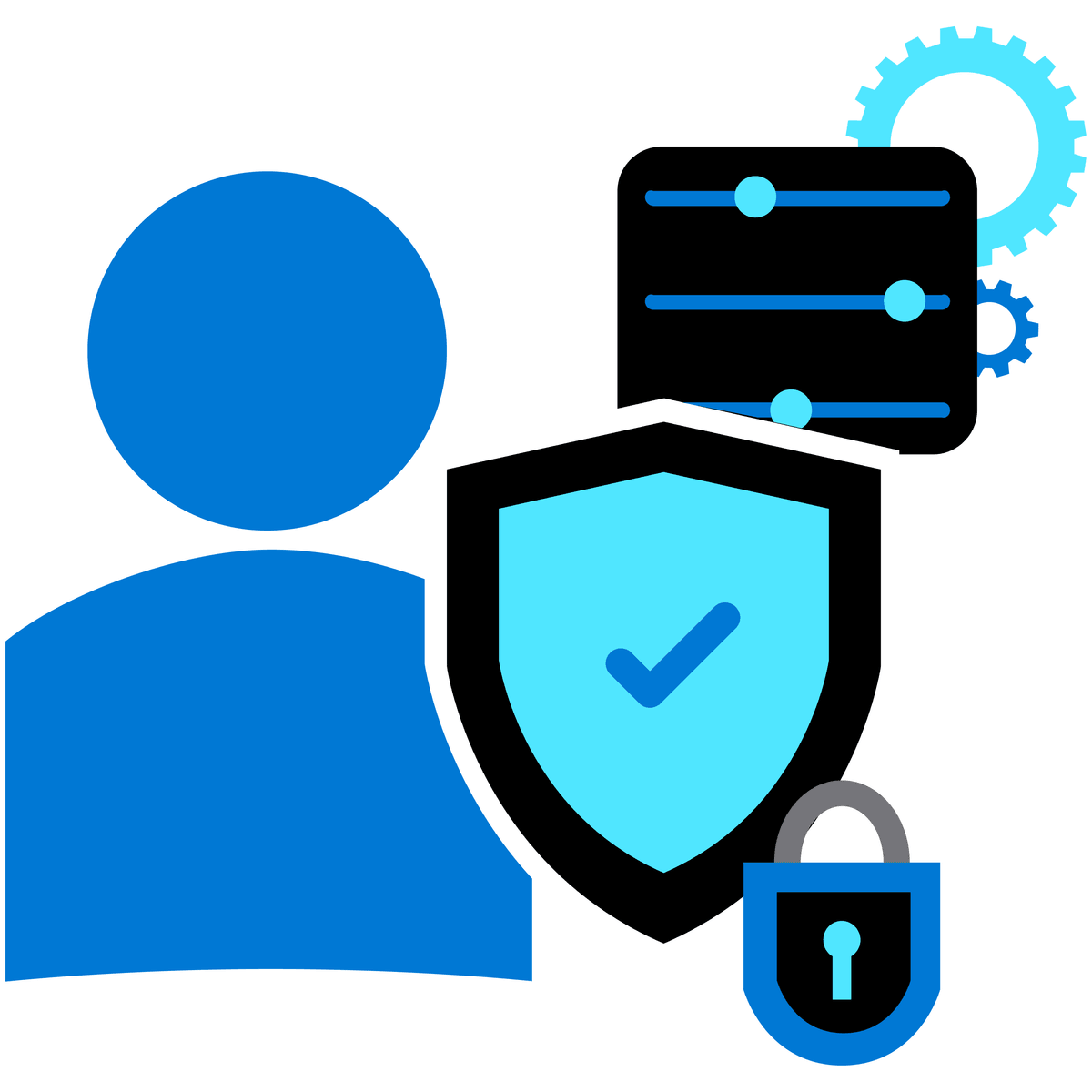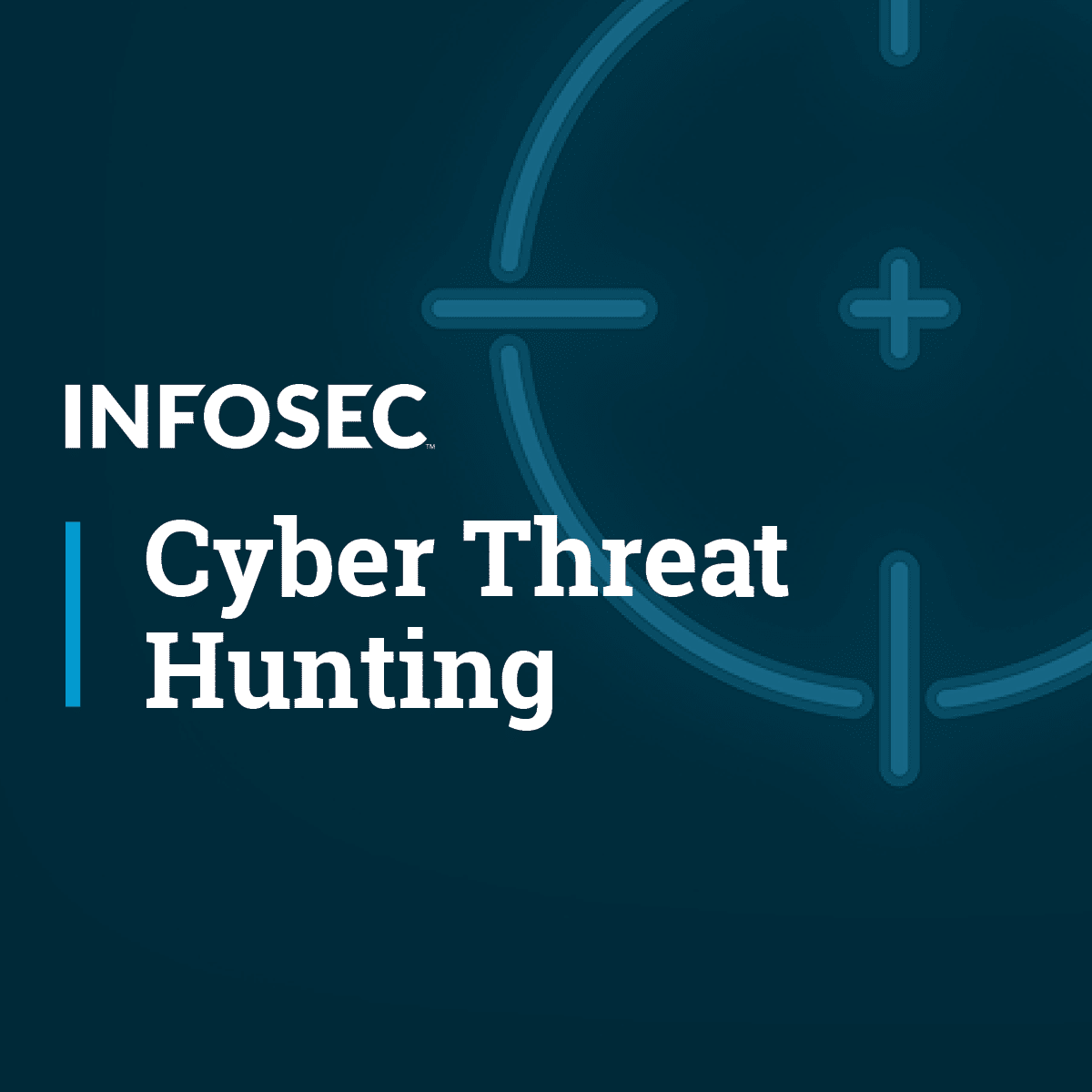Forensic Investigator
Delving into the World of Forensic Investigation
Forensic investigation is a meticulous and systematic process of gathering, analyzing, and interpreting physical and digital evidence to uncover facts related to legal matters, be it criminal or civil. It's a field that stands at the intersection of science, law, and critical thinking, playing a pivotal role in the justice system. Professionals in this domain meticulously examine crime scenes, analyze various forms of evidence, and present their findings, often in a court of law. The core of forensic investigation lies in its objective and scientific approach to understanding past events.
For those intrigued by solving complex puzzles and contributing to the pursuit of truth, a career as a forensic investigator offers a unique and often compelling path. The work can be incredibly engaging, involving the application of cutting-edge scientific techniques and a sharp analytical mind to piece together what happened. Whether it's analyzing digital footprints to solve a cybercrime or examining physical evidence from a crime scene, the diverse challenges ensure that no two cases are exactly alike. This dynamic nature, coupled with the profound impact one can have on delivering justice, makes forensic investigation a deeply rewarding, albeit demanding, profession.
Understanding the Landscape of Forensic Investigation
Before diving deeper, it's helpful to understand the breadth and historical context of forensic investigation, as well as how it differs from closely related fields. This foundational knowledge is crucial for anyone considering a career in this area.
Defining the Domain: What Forensic Investigators Do
Forensic investigation involves the application of scientific principles and techniques to investigate crimes and other legal matters. Investigators collect, preserve, and analyze evidence, which can range from biological samples and fingerprints to digital data from computers and mobile devices. Their work is crucial in establishing facts, reconstructing events, and identifying individuals involved in a case. The findings of a forensic investigator can be pivotal in legal proceedings, helping to determine guilt or innocence.
The scope of forensic investigation is broad, covering various specializations. These can include crime scene investigation, where professionals focus on the meticulous collection of physical evidence at the scene; digital forensics, which deals with recovering and analyzing data from electronic devices; forensic accounting, which investigates financial crimes; and many other niche areas. Regardless of the specialization, the overarching goal remains the same: to uncover the truth through objective analysis.
Forensic investigators are employed across a range of sectors. Government agencies, particularly law enforcement at the local, state, and federal levels, are major employers. Additionally, private consulting firms, legal practices, financial institutions, and cybersecurity companies increasingly rely on forensic expertise to investigate incidents, mitigate risks, and ensure compliance. This diversity offers various work environments and career pathways for aspiring investigators.
A Brief Look at the Evolution of Forensic Investigation
The roots of forensic investigation stretch back centuries, with early examples of scientific principles being applied to solve crimes found in ancient civilizations. However, the formalization of forensic science as a distinct discipline largely began in the 19th and early 20th centuries. Pioneering figures like Sir Arthur Conan Doyle, through his fictional detective Sherlock Holmes, popularized the idea of using scientific observation and deduction in criminal investigations, reflecting and perhaps even influencing real-world developments.
Key milestones include the development of fingerprint identification, advancements in ballistics, and the understanding of blood typing. The mid-20th century saw the advent of DNA analysis, which revolutionized the field by providing an incredibly powerful tool for identification. More recently, the explosion of digital technology has led to the rapid growth of digital forensics, addressing crimes involving computers, mobile devices, and the internet. Today, forensic investigation continues to evolve with new technologies and methodologies constantly being developed to meet the challenges of increasingly complex cases.
This continuous evolution means that professionals in the field must be committed to lifelong learning and adaptation. New scientific breakthroughs and technological advancements regularly introduce new tools and techniques, requiring investigators to stay updated to maintain their effectiveness.
Forensic Investigation vs. Forensic Science: Clarifying the Roles
It's common for the terms "forensic investigator" and "forensic scientist" to be used interchangeably, but there are important distinctions, though their roles are often complementary and overlapping. Generally, a forensic investigator is more likely to be involved in the on-site collection of evidence and the overall investigative process, which might include interviewing individuals and piecing together the narrative of events. They often work directly at crime scenes to document, collect, and preserve physical evidence.
On the other hand, a forensic scientist typically works primarily in a laboratory setting. They receive the evidence collected by investigators and use specialized scientific techniques to analyze it. For example, a forensic scientist might conduct DNA analysis on biological samples, identify controlled substances, or examine trace evidence like fibers or paint chips. Their role is deeply rooted in scientific methodology and laboratory procedures.
However, the lines can blur, especially in smaller agencies or specific roles. Some professionals may perform duties that span both investigation and laboratory analysis. Furthermore, the term "forensic investigator" itself can be broad; for instance, a digital forensic investigator might spend significant time in a lab-like environment analyzing electronic devices. The key takeaway is that while crime scene investigators are often focused on the "where" and "how" of evidence collection, forensic scientists delve into the detailed scientific "what" of the evidence. Both are crucial to the successful resolution of cases. Understanding these distinctions can help aspiring professionals identify the specific area within the broader field of forensics that best aligns with their interests and skills.
Exploring these related career paths can provide further clarity on the specific roles within the broader forensic field.
Core Duties: A Day in the Life of a Forensic Investigator
The responsibilities of a forensic investigator are multifaceted, demanding a blend of meticulous fieldwork, precise laboratory analysis (or coordination thereof), and clear communication. Their work is critical in piecing together events and providing objective findings for legal proceedings.
At the Scene: Evidence Collection and Analysis
A primary responsibility for many forensic investigators, particularly those in crime scene investigation units, is the careful and methodical processing of crime scenes. This involves identifying, documenting, collecting, and preserving all forms of physical evidence. This evidence can range from fingerprints, DNA samples (blood, hair, bodily fluids), trace evidence (fibers, paint chips, glass fragments), ballistics (bullets, casings), to impressions (tire tracks, footprints).
The process is highly systematic. Investigators meticulously photograph and sketch the scene, noting the location and condition of all potential evidence before anything is disturbed. Each piece of evidence is then carefully collected, packaged, and labeled to maintain its integrity and establish a clear chain of custody, which is vital for its admissibility in court. They may use various tools and techniques, from specialized lighting to reveal latent prints to casting materials for impressions.
In addition to physical evidence, investigators are increasingly dealing with digital evidence found at scenes, such as computers, mobile phones, and storage devices. While specialized digital forensic experts might handle the in-depth analysis, the initial securing and collection of these devices often fall to on-scene investigators, who must do so in a way that prevents data alteration or loss.
Understanding the fundamentals of evidence gathering is crucial. This topic provides a foundational overview of the principles and practices involved in careful evidence collection.
In the Lab and On the Screen: Testing and Digital Exploration
Once evidence is collected, it often moves to a laboratory for detailed analysis by forensic scientists or, in the case of digital evidence, to digital forensic investigators. While some forensic investigators may conduct certain types of laboratory tests themselves, particularly in smaller departments or specialized units, many will be responsible for submitting evidence to the appropriate lab sections and interpreting the resulting reports.
Digital forensics is a rapidly expanding area where investigators delve into the digital realm. This involves using specialized software and hardware to recover, analyze, and interpret data from computers, smartphones, servers, and other digital devices. Investigators might be looking for deleted files, browsing history, email communications, location data, or evidence of unauthorized access. The techniques here are complex, requiring a deep understanding of computer systems, file structures, and data recovery methods. The goal is to reconstruct digital events and uncover electronic trails that can shed light on a case.
For those interested in the digital side of forensics, understanding tools and techniques for analyzing various systems is crucial. The following courses offer practical insights into Windows registry analysis and incident response tools, which are fundamental for digital investigations.
To gain a comprehensive understanding of the scientific principles and practices in forensics, these books are excellent resources. They cover a wide range of laboratory techniques and the fundamentals of network forensics.
Exploring topics like general Forensic Tools and specialized Network Forensics can deepen your understanding of the technologies involved.
Reporting and Testifying: The Legal Dimension
A critical aspect of a forensic investigator's role is the preparation of detailed, objective, and accurate reports outlining their findings. These reports document the evidence collected, the methods of analysis used, and the conclusions drawn. They must be clear, concise, and understandable to a non-scientific audience, as they form a crucial part of the case file and are used by law enforcement, attorneys, and the courts.
Furthermore, forensic investigators are often called upon to provide expert testimony in court. This requires them to present their findings clearly and confidently, explain complex scientific or technical concepts in simple terms, and withstand cross-examination. The credibility and professionalism of the investigator during testimony can significantly impact the outcome of a legal case. Therefore, strong communication skills and a thorough understanding of legal procedures are essential.
Maintaining meticulous records and adhering to established protocols for evidence handling, such as the chain of custody, are paramount to ensure that the evidence and the investigator's testimony are admissible and hold up under legal scrutiny.
These books offer valuable guidance on records management and evidence presentation, which are crucial skills for preparing comprehensive legal reports and testifying effectively in court.
Teamwork: Collaborating with Law Enforcement and Legal Professionals
Forensic investigation is rarely a solo endeavor. Investigators work closely with a variety of professionals, most notably law enforcement officers (detectives, police officers) and legal teams (prosecutors, defense attorneys). Effective collaboration is key to a successful investigation and prosecution.
With law enforcement, investigators coordinate on-scene activities, share information about the case, and ensure that all investigative avenues are explored. They might provide police with leads based on preliminary findings or request further information to aid their analysis. Clear and timely communication helps to ensure that the investigation proceeds efficiently and effectively.
Collaboration with legal professionals is equally important. Investigators must explain their findings to attorneys, help them understand the significance of the evidence, and prepare for trial. They may also be consulted on the scientific or technical aspects of a case. Maintaining objectivity and providing unbiased information is crucial, regardless of which side has requested their expertise. The ability to work as part of a multidisciplinary team is a hallmark of a successful forensic investigator.
Building Blocks: Skills and Qualifications for Success
A career as a forensic investigator demands a unique combination of intellectual acuity, technical know-how, and specific educational achievements. Understanding these requirements is the first step for anyone aspiring to enter this challenging and rewarding field.
The Investigator's Mindset: Analytical and Critical Thinking
At the heart of forensic investigation lies a profound need for sharp analytical and critical thinking skills. Investigators are constantly faced with complex scenarios and incomplete information. They must be able to meticulously examine evidence, identify patterns, draw logical inferences, and consider multiple hypotheses without jumping to premature conclusions. The ability to think critically allows them to evaluate the reliability of information, recognize potential biases, and approach each case with objectivity.
Problem-solving is another crucial mental attribute. Forensic investigators are essentially problem-solvers, tasked with reconstructing past events based on the available evidence. This often involves piecing together fragmented information, overcoming technical challenges in evidence recovery, and developing innovative approaches to complex cases. A methodical and persistent mindset is essential when facing intricate puzzles that require careful unraveling.
Attention to detail is non-negotiable in this field. A tiny, overlooked piece of evidence or a minor error in analysis can have significant consequences for an investigation and the subsequent legal proceedings. Investigators must be incredibly thorough and precise in their observations, documentation, and analysis to ensure the accuracy and integrity of their findings.
Hands-On Capabilities: Technical Proficiency with Forensic Tools
Beyond a sharp mind, forensic investigators need practical, technical skills related to the tools and technologies used in their specific area of focus. For crime scene investigators, this includes proficiency in techniques for documenting scenes (photography, sketching), identifying and collecting various types of physical evidence, and using specialized evidence collection kits and equipment.
For those specializing in digital forensics, technical skills are paramount. This includes a deep understanding of computer hardware and software, operating systems (like Windows, Linux), network protocols, file systems, and data encryption. Proficiency in using specialized digital forensic software (e.g., EnCase, FTK, Autopsy) and hardware tools for data acquisition and analysis is essential. As technology evolves rapidly, a continuous commitment to learning new tools and techniques is vital.
Laboratory-based forensic scientists, while distinct, also require extensive technical proficiency with analytical instruments and methodologies specific to their discipline, such as microscopy, chromatography, spectroscopy, and DNA sequencing technologies. While a forensic investigator may not operate all these instruments, understanding their capabilities and limitations is often important for interpreting results and collaborating effectively.
These courses can help build proficiency with some of the tools and techniques relevant to digital forensics and security operations, areas which often overlap with forensic investigation. Understanding security operations centers and specific tools like Kali Linux are valuable assets.
For foundational knowledge and practical guidance on tools and techniques used in crime scene investigation and malware analysis, these books are excellent resources.
Relevant topics to explore further include understanding the tools used in forensics and the specifics of memory analysis.
Laying the Groundwork: Educational Prerequisites
A strong educational foundation is typically required to become a forensic investigator. Most positions require at least a bachelor's degree. For roles focusing on crime scene investigation or general forensic investigation, degrees in criminal justice, forensic science, or a natural science (e.g., biology, chemistry, physics) are common. These programs provide a necessary understanding of the legal system, criminal procedure, and scientific principles.
For specializations like digital forensics, a bachelor's degree in computer science, cybersecurity, or information technology is often preferred, as these programs build the necessary technical expertise. Some universities now offer specialized bachelor's degrees in digital forensics or cyber investigation. Coursework in these programs often covers topics like data recovery, network forensics, mobile device forensics, and cyber law.
While a bachelor's degree is the typical entry point, some advanced or specialized roles, particularly in forensic science laboratories or in leadership positions, may require or prefer a master's degree. A graduate degree can provide more in-depth knowledge and research experience in a specific forensic discipline. Regardless of the degree level, a strong emphasis on science, mathematics, and analytical courses is generally beneficial.
This course offers an introduction to cybersecurity essentials, which can be a good starting point for those interested in the digital aspects of forensic investigation and understanding core security concepts.
Validation and Advancement: Certifications and Licensure
While not always mandatory for entry-level positions, professional certifications can significantly enhance a forensic investigator's credentials, demonstrate a high level of competency, and improve career advancement prospects. Various organizations offer certifications in general forensic science and specialized areas like crime scene investigation, digital forensics, forensic accounting, and more.
In the realm of digital forensics, certifications such as the GIAC Certified Forensic Analyst (GCFA), Certified Computer Examiner (CCE), or EnCase Certified Examiner (EnCE) are well-regarded. For crime scene investigators, organizations like the International Association for Identification (IAI) offer certifications at various levels based on experience and examination. Specific requirements for licensure or certification can vary by jurisdiction and employer, so it's important to research the standards relevant to your desired career path and location. Many of these certifying bodies, such as the IAI, have websites detailing their requirements.
Obtaining these certifications often requires a combination of education, experience, and passing a rigorous examination. They signal to employers and the legal system that an investigator possesses a verified level of expertise and adheres to professional standards. Continuous professional development and maintaining these certifications are also typically required, further emphasizing the need for ongoing learning in this dynamic field.
Educational Roads to Forensic Investigation
Embarking on a career in forensic investigation requires a deliberate and focused educational journey. From laying the groundwork in high school to pursuing specialized graduate studies, each step contributes to building the knowledge and skills necessary for this demanding profession.
Starting Early: High School Preparation for a Future in Forensics
For high school students contemplating a career in forensic investigation, a strong academic foundation in science and mathematics is highly recommended. Courses in biology, chemistry, physics, and math (especially algebra, geometry, and statistics) will provide essential knowledge for understanding the scientific principles underpinning many forensic techniques. Strong English and communication skills are also vital, as forensic investigators need to write clear reports and potentially testify in court.
Beyond core academics, participation in science clubs, debate teams, or activities that promote analytical thinking and problem-solving can be beneficial. If available, introductory courses in criminal justice or law can offer early exposure to the legal aspects of the field. Developing good study habits, attention to detail, and strong ethical principles during these formative years will also serve students well in their future academic and professional pursuits.
It's never too early to start exploring. Reading books on forensic science (for a general audience), watching reputable documentaries, or even researching online can spark interest and provide a clearer picture of what the field entails. While direct work experience might be limited at this stage, volunteering in community service or roles that require responsibility and meticulousness can help build transferable skills.
Building the Core: Undergraduate Degree Options
A bachelor's degree is generally the minimum educational requirement for entry-level positions in forensic investigation. Several degree paths can lead to this career, depending on the desired specialization. A common choice is a Bachelor of Science in Forensic Science. These programs typically offer a broad curriculum covering various scientific disciplines as they apply to law, including crime scene investigation techniques, evidence analysis, and forensic biology and chemistry.
Another popular option is a degree in Criminal Justice or Criminology, often with a concentration or coursework in forensic investigation. These programs provide a strong understanding of the legal system, criminal behavior, and investigative procedures. For those leaning towards laboratory-based roles, a bachelor's degree in a natural science such as Chemistry, Biology, or Physics is essential, providing the deep scientific knowledge required for analyzing physical evidence.
If your interest lies in the digital realm, a Bachelor's degree in Computer Science, Cybersecurity, or a specialized Digital Forensics program is the most direct route. These degrees equip students with the technical expertise needed to analyze digital evidence from computers, mobile devices, and networks. Regardless of the major, look for programs that offer laboratory components, internships, or research opportunities to gain practical experience. You can explore various Science and IT & Networking courses on platforms like OpenCourser to supplement your learning.
These books offer a solid introduction to the field of forensic science, suitable for undergraduate students or those new to the subject. They provide a broad overview of concepts and techniques encountered in forensic investigations.
Advanced Learning: Graduate Programs and Specialized Training
While a bachelor's degree is often sufficient for entry-level roles, a master's degree or other specialized postgraduate training can open doors to more advanced positions, research opportunities, and higher earning potential. Master's programs in Forensic Science allow for deeper specialization in areas like DNA analysis, toxicology, trace evidence, or forensic anthropology. These programs typically involve advanced coursework, extensive laboratory work, and a thesis or capstone research project.
For those in digital forensics, a Master's in Cybersecurity with a digital forensics concentration, or a dedicated Master of Science in Digital Forensics, can provide cutting-edge knowledge and skills in this rapidly evolving subfield. Similarly, specialized graduate certificates can offer focused training in specific areas without the commitment of a full master's degree, and are often pursued by working professionals looking to upskill.
Beyond academic degrees, numerous professional training programs and workshops are offered by government agencies, professional organizations, and private companies. These can provide hands-on training in specific techniques, software, or equipment, and are crucial for staying current in a field characterized by constant technological advancement. Many universities also offer specialized non-degree programs. For example, the National Institute of Standards and Technology (NIST) lists various professional certificate programs that can enhance specialized skills.
Pushing Boundaries: Research Opportunities in Forensic Investigation
Research plays a vital role in advancing the field of forensic investigation. Academic institutions, government laboratories, and private research organizations are constantly working to develop new and improved methods for evidence detection, collection, and analysis. For individuals with a strong scientific aptitude and an inquisitive mind, pursuing research in forensic science can be a rewarding path.
Opportunities for research can begin at the undergraduate level through honors theses or assisting faculty with their projects. Graduate programs, particularly at the doctoral (Ph.D.) level, are heavily research-focused, preparing individuals for careers as leading forensic scientists, academics, or research directors in government or private labs. Areas of active research include improving the sensitivity and specificity of DNA analysis, developing new techniques for digital evidence recovery from emerging technologies (like IoT devices and cloud computing), understanding the impact of cognitive bias in forensic decision-making, and enhancing the statistical interpretation of evidence.
Contributing to forensic research helps to strengthen the scientific foundations of the discipline, improve the reliability of forensic evidence, and ensure that the justice system benefits from the latest scientific advancements. It's a path that requires dedication, a strong grasp of scientific methodology, and a passion for discovery.
The Digital Frontier: Online and Independent Learning in Forensics
In an era of accessible online education, aspiring and current forensic investigators have more avenues than ever to acquire knowledge and skills. While hands-on experience remains crucial, online resources offer valuable pathways for foundational learning, supplementing formal education, and engaging in practical skill development.
Building a Base: Online Learning for Foundational Knowledge
Online courses can be an excellent starting point for individuals looking to build foundational knowledge in forensic investigation or its related disciplines. Many platforms offer introductory courses in criminal justice, forensic science, cybersecurity, and law, which can provide a solid understanding of key concepts, terminology, and methodologies. For those considering a career change or exploring the field for the first time, these courses offer a flexible and often cost-effective way to gauge their interest and aptitude before committing to a full degree program.
Online learning is particularly well-suited for theoretical aspects of forensics, such as understanding legal procedures, ethical considerations, or the scientific principles behind certain analytical techniques. Students can learn about the history of forensic science, the different branches of the field, and the role of forensic evidence in the justice system. OpenCourser provides a vast catalog where learners can browse courses across various subjects relevant to forensics, such as Legal Studies and Cybersecurity.
While online courses might not replace the hands-on laboratory work required for many forensic science roles, they can effectively lay the groundwork, enabling learners to make more informed decisions about their educational and career paths. They also allow individuals to learn at their own pace, which can be beneficial for those juggling other commitments.
These online courses can provide a solid introduction to cybersecurity concepts that are increasingly relevant to digital forensic investigations. Understanding these essentials is a great first step.
Enhancing Expertise: Supplementing Formal Education with Digital Resources
Even for students enrolled in traditional, campus-based forensic science or criminal justice programs, online resources can serve as powerful supplements to their formal education. Digital platforms often provide access to specialized courses, workshops, and materials that may not be available at their home institution or that can offer different perspectives on a topic. For example, a student studying general forensic science might take an online course in a niche area like wildlife forensics or forensic accounting to broaden their knowledge.
Professionals already working in the field can also leverage online learning to stay updated on the latest advancements, tools, and techniques. Given the rapid evolution of forensic science, particularly in areas like digital forensics and DNA analysis, continuous learning is essential. Online courses and webinars can provide accessible training on new software, updated protocols, or emerging legal standards without requiring extensive time away from work. Platforms like OpenCourser allow users to find and compare courses, making it easier to identify relevant professional development opportunities. The OpenCourser Learner's Guide offers tips on how to effectively use online courses as a working professional.
Furthermore, digital resources include more than just formal courses. Access to academic journals, online libraries, professional forums, and expert blogs can keep students and practitioners at the forefront of forensic knowledge. Many professional organizations in forensics also offer online resources, including publications and training materials, to their members.
These courses delve into more specific areas of cybersecurity and IT infrastructure, useful for supplementing formal education, particularly for those interested in digital forensics and security management.
These books offer deeper dives into specialized forensic areas like DNA profiling and pathology, ideal for supplementing formal education and gaining expert knowledge.
Practical Application: Project-Based Learning for Skill Development
While theoretical knowledge is important, practical skills are what truly define a competent forensic investigator. Project-based learning, whether integrated into online courses or pursued independently, offers an excellent way to develop these skills. In the context of digital forensics, for instance, learners can work on simulated investigations, analyze sample datasets, or practice using forensic software tools in a controlled environment. Many online courses, particularly in cybersecurity and data analysis, incorporate hands-on labs and projects.
Individuals can also design their own projects. This could involve setting up a virtual lab environment to experiment with different operating systems and network configurations, practicing data recovery techniques on old hard drives (with appropriate permissions and ethical considerations), or participating in online "capture the flag" (CTF) competitions that often involve forensic challenges. These activities help bridge the gap between theory and practice, building confidence and a portfolio of demonstrable skills.
For those interested in physical evidence, while direct crime scene simulation is harder to achieve independently, one can focus on developing meticulous observation and documentation skills through other means. For example, practicing detailed sketching, precise measurement, and thorough note-taking in various contexts can hone these transferable skills. Some online materials might also offer virtual crime scene walkthroughs or case studies that allow learners to apply analytical principles.
Courses that emphasize hands-on learning with tools like Nmap or provide environments for practicing with Kali Linux are invaluable for developing practical skills in network security and penetration testing, which have forensic applications.
Knowing the Boundaries: Limitations of Online Courses in Hands-On Fields
It's crucial for aspiring forensic investigators, especially those focusing on roles requiring extensive laboratory work or physical crime scene processing, to understand the limitations of purely online learning. While online courses excel at delivering theoretical knowledge and can simulate some practical scenarios, they cannot fully replicate the hands-on experience gained in a physical laboratory or at a mock crime scene under the direct supervision of experienced instructors.
Fields like forensic chemistry, biology (e.g., DNA analysis), and trace evidence analysis require proficiency with complex laboratory equipment, precise wet lab techniques, and adherence to strict quality control protocols. These skills are best developed through in-person training and practice. Similarly, crime scene investigation involves nuanced skills in evidence recognition, collection, and preservation in unpredictable real-world environments, which are difficult to master solely through virtual means.
Therefore, for many forensic specializations, a hybrid approach is often the most effective: leveraging online resources for foundational knowledge, theoretical understanding, and specific digital skills, while pursuing in-person, hands-on training through formal degree programs, internships, or specialized workshops for practical competencies. When exploring online programs, it's wise to check if they offer any in-person lab components or partnerships for practical experience. Understanding these limitations helps set realistic expectations for what can be achieved through online learning alone in a field that so heavily relies on tangible skills and physical evidence.
Navigating Your Career: Progression and Opportunities
The field of forensic investigation offers diverse career paths with opportunities for growth and specialization. Understanding the typical trajectory, from entry-level positions to senior roles, as well as salary expectations and market demand, can help individuals plan their careers effectively.
Starting the Journey: Entry-Level Roles in Forensic Investigation
Entry into the world of forensic investigation often begins with roles such as a Forensic Technician, Crime Scene Technician, or junior Digital Forensics Analyst. These positions typically require a bachelor's degree in forensic science, criminal justice, a natural science, or computer science, depending on the specialization. Initial responsibilities might include assisting senior investigators, collecting and documenting evidence under supervision, performing routine laboratory tests, or conducting preliminary analysis of digital devices.
For example, an entry-level crime scene technician will learn the ropes of securing crime scenes, photographing evidence, and properly packaging different types of materials. A new digital forensics analyst might start by imaging hard drives, recovering basic data, and assisting with report preparation. These roles are crucial for gaining practical experience, learning established protocols, and developing the foundational skills necessary for advancement. Competition for these entry-level positions can be strong, so internships or volunteer experience gained during undergraduate studies can be highly beneficial.
Many agencies, especially in law enforcement, provide extensive on-the-job training for new hires, complementing their academic qualifications with practical, agency-specific procedures. This initial phase of a career is about building a solid base of experience and demonstrating competence and reliability.
This book serves as an excellent starting point, providing a comprehensive manual on the breadth of forensic science, which is essential for anyone beginning in an entry-level role and looking to understand the fundamentals.
Climbing the Ladder: Mid-Career Specializations
With experience, forensic investigators often have the opportunity to specialize in particular areas that align with their interests and aptitudes. This specialization can lead to mid-career roles with greater responsibility and autonomy. In crime scene investigation, one might specialize in bloodstain pattern analysis, latent print examination, or ballistics. These roles often require additional advanced training and certifications.
In the digital forensics realm, specializations are numerous and constantly evolving. Investigators might focus on mobile device forensics, network forensics, cloud forensics, malware analysis, or e-discovery for civil litigation. Other specialized forensic fields include forensic accounting (investigating financial fraud), forensic toxicology (analyzing drugs and poisons), forensic DNA analysis, or even more niche areas like forensic anthropology or odontology.
Achieving these mid-career roles typically involves several years of experience, a proven track record of successful investigations, and often advanced certifications or even a master's degree in the chosen specialty. These professionals are often considered experts in their domain and may be called upon to handle more complex cases or train junior staff.
For those interested in specializing in the rapidly growing field of digital evidence, particularly concerning ransomware and cyber extortion, these books offer critical insights into response techniques and the nature of these threats.
Exploring specific topics and related careers can further guide specialization choices within forensics.
Reaching the Top: Senior Positions and Leadership Roles
Seasoned forensic investigators with extensive experience, a strong record of accomplishment, and demonstrated leadership qualities can advance to senior and managerial positions. These roles might include titles like Senior Forensic Investigator, Lead Crime Scene Investigator, Digital Forensics Manager, or Director of a Forensic Laboratory or Unit.
In these positions, responsibilities shift towards overseeing complex investigations, managing teams of investigators or scientists, developing and implementing departmental policies and procedures, managing budgets, and ensuring quality assurance. Senior professionals also play a key role in mentoring and training junior staff, liaising with other agencies and legal professionals at a higher level, and sometimes contributing to research or policy development in the field.
Attaining these leadership roles often requires a significant number of years in the field (often a decade or more), advanced degrees or certifications, and strong interpersonal and management skills. They are responsible for the overall effectiveness and integrity of their forensic unit's operations and play a crucial part in shaping the future direction of forensic services within their organization.
Show Me the Numbers: Salary Benchmarks and Geographic Demand
Salary expectations for forensic investigators can vary significantly based on factors such as education, experience, specialization, geographic location, and the type of employer (public vs. private sector). According to the U.S. Bureau of Labor Statistics (BLS), the median annual wage for forensic science technicians was $64,940 in May 2023. The lowest 10 percent earned less than $41,450, and the highest 10 percent earned more than $109,690. (Note: The BLS often groups various forensic roles, so these figures provide a general idea.) You can find more details on the BLS Occupational Outlook Handbook page for Forensic Science Technicians.
Geographic location plays a significant role in both salary and demand. States with larger populations and consequently higher crime rates or more extensive legal and corporate sectors often have more forensic positions. For instance, states like California, Texas, Florida, and New York typically employ a larger number of forensic professionals. Salaries can also be higher in metropolitan areas with a higher cost of living. Federal government positions often offer competitive salaries.
The job outlook for forensic science technicians is projected to grow 11 percent from 2022 to 2032, which is much faster than the average for all occupations. This growth is driven by advancements in forensic technology and the increasing use of forensic evidence in legal proceedings. However, it's important to note that because it's a specialized field, the actual number of new jobs might be moderate, and competition for positions can be strong, especially in popular areas.
The Investigator's Toolkit: Modern Tools and Techniques
Modern forensic investigation relies on an ever-evolving array of sophisticated tools and techniques. From analyzing microscopic DNA strands to navigating complex digital landscapes, investigators employ cutting-edge science and technology to uncover evidence and reconstruct events.
Unlocking Biological Clues: DNA Analysis and Biometric Technologies
DNA analysis has revolutionized forensic science, providing a powerful tool for identifying individuals with a high degree of accuracy. Forensic investigators collect biological samples such as blood, saliva, semen, hair, or skin cells from crime scenes or individuals. In the laboratory, forensic scientists extract DNA from these samples and analyze specific regions of the DNA, known as short tandem repeats (STRs), to create a unique genetic profile. This profile can then be compared to known samples from suspects or victims, or searched against national DNA databases like CODIS (Combined DNA Index System) to find potential matches.
Biometric technologies also play a crucial role. Fingerprint analysis, one of the oldest forensic techniques, remains a staple for identification. Automated Fingerprint Identification Systems (AFIS) and the Next Generation Identification (NGI) system allow for rapid searching of vast fingerprint databases. Other biometric modalities are also gaining prominence, including facial recognition technology, which can compare images from surveillance footage to databases of known individuals, and iris or palm print recognition. These technologies aid in identifying suspects, linking individuals to crime scenes, and identifying unknown deceased persons.
The science behind these techniques is complex, and investigators must ensure proper collection and preservation of biological evidence to prevent contamination and degradation, which could compromise the analysis. For those interested in this area, a strong background in biology and genetics is essential. You can delve deeper into related subjects through Biology courses on OpenCourser.
This book is a key resource for understanding the intricacies of DNA profiling in forensic contexts, covering the scientific principles and applications essential for investigators working with biological evidence.
Navigating the Digital Maze: Software and Hardware for Digital Forensics
In an increasingly digital world, digital forensics has become an indispensable part of many investigations. Forensic investigators specializing in this area use a wide array of software and hardware tools to recover, analyze, and interpret data from computers, mobile phones, tablets, servers, and other electronic devices. Specialized forensic software like EnCase, FTK (Forensic Toolkit), Autopsy, and Cellebrite allows investigators to create forensic images (bit-by-bit copies) of storage media, recover deleted files, examine file metadata, analyze web browsing history, and trace digital communications.
Hardware tools are also critical. Write-blockers prevent any alteration to original evidence drives during the imaging process. Specialized devices are used for acquiring data from mobile phones, often bypassing security features. Forensic workstations are powerful computers configured with the necessary software and hardware for complex digital analyses. Investigators might also use tools for network traffic analysis, memory analysis (examining a computer's live RAM), and database forensics.
The field is characterized by rapid technological change, so digital forensic investigators must continuously update their skills and knowledge of new devices, operating systems, applications, and forensic tools. OpenCourser offers a range of Cybersecurity and IT & Networking courses that can help build foundational and advanced skills in this domain.
These courses offer insights into specific tools and techniques used in digital investigations, such as examining Windows Registry or understanding OWASP risks, which are crucial for digital forensic professionals.
For more in-depth knowledge, these topics provide focused information on the array of digital forensic tools and specific techniques like password recovery.
On the Horizon: Emerging Technologies in Forensics
The field of forensic investigation is continually being shaped by emerging technologies. Artificial intelligence (AI) and machine learning (ML) are beginning to make inroads, with potential applications in areas like analyzing large datasets (e.g., sifting through massive amounts of digital communications), image and pattern recognition (e.g., facial recognition, analyzing CCTV footage), and potentially even predicting certain types of criminal activity or identifying subtle patterns in evidence that might be missed by human analysts.
The proliferation of Internet of Things (IoT) devices – from smart home appliances to wearable tech – presents both opportunities and challenges for forensic investigators. These devices generate vast amounts of data that can provide valuable insights into an individual's activities and location, but extracting and analyzing this data requires new tools and techniques. Cloud forensics is another rapidly growing area, as more data is stored remotely on cloud servers rather than on local devices, necessitating specialized methods for evidence acquisition and analysis.
Blockchain technology is also being explored for its potential in ensuring the integrity of digital evidence and maintaining an unbreakable chain of custody. As these and other technologies mature and become more integrated into forensic practice, investigators will need to adapt and acquire new skill sets to leverage their capabilities effectively while also understanding their limitations and ethical implications.
Understanding threat intelligence and how modern Security Information and Event Management (SIEM) systems function is becoming increasingly important as forensic investigations intersect more with complex cyber threats and large-scale data analysis.
The Golden Rule: Standard Protocols for Evidence Preservation
Regardless of the specific tools or types of evidence involved, adherence to standard protocols for evidence preservation is paramount in forensic investigation. The primary goal is to maintain the integrity of the evidence from the moment it's collected until it's presented in court. This ensures that the evidence has not been altered, contaminated, or tampered with, and that the analytical results are reliable and admissible.
A crucial component of evidence preservation is the chain of custody. This is a meticulous chronological record documenting every person who has handled the evidence, the dates and times of transfer, the location of the evidence, and the purpose for any handling or analysis. Any break or inconsistency in the chain of custody can call the integrity of the evidence into question and potentially render it inadmissible in legal proceedings.
Other standard protocols include proper documentation (notes, photographs, sketches), using appropriate collection and packaging techniques for different types of evidence to prevent degradation or cross-contamination, and employing write-protection mechanisms when dealing with digital evidence to avoid accidental modification. Forensic laboratories also adhere to strict quality assurance and quality control procedures to ensure the accuracy and reliability of their analyses. These protocols are the bedrock of credible forensic investigation.
Understanding the core principles of evidence collection and the use of cryptographic hashing to ensure data integrity are fundamental to maintaining proper evidence preservation protocols.
Navigating the Gray: Ethical and Legal Challenges
Forensic investigators operate within a complex framework of ethical responsibilities and legal constraints. Their work has profound implications for individual liberties and the administration of justice, making adherence to high ethical standards and a thorough understanding of legal requirements absolutely critical.
The Unbroken Link: Chain-of-Custody Requirements
The chain of custody is a cornerstone of forensic investigation. It refers to the chronological documentation or paper trail, showing the seizure, custody, control, transfer, analysis, and disposition of physical or electronic evidence. Maintaining an unbroken and meticulously documented chain of custody is essential to demonstrate that the evidence presented in court is the same evidence collected at the crime scene or from a device, and that it has not been tampered with, altered, or substituted.
Any gap or irregularity in the chain of custody can severely undermine the credibility of the evidence and may lead to it being ruled inadmissible by the court. This means that every individual who handles the evidence, from the initial collection by a crime scene investigator to the analysis by a forensic scientist and its storage until trial, must be documented. Procedures include using sealed evidence bags, detailed labels, and logs that record every transfer of the evidence.
For digital evidence, maintaining the chain of custody involves documenting how data was acquired (e.g., using specific software and hardware, creating a forensic image), how it was stored, and who accessed it for analysis. The integrity of the original data must be preserved, often by working only on exact copies (forensic images) and using hash values to verify that the copy is identical to the original.
This book provides essential information on civil practice, which inherently includes understanding and adhering to proper evidence handling and chain-of-custody requirements within legal proceedings.
The Human Factor: Addressing Bias in Forensic Analysis
Forensic investigators, like all humans, are susceptible to cognitive biases that can unconsciously influence their interpretation of evidence and their conclusions. Confirmation bias, for example, is the tendency to seek out or interpret information in a way that confirms pre-existing beliefs or hypotheses, while overlooking contradictory evidence. Contextual bias can occur when an investigator is provided with irrelevant information about a case (e.g., a suspect's prior criminal record) that might unduly influence their analysis of the physical evidence.
Recognizing and mitigating the potential for bias is a significant ethical challenge in forensic science. Strategies to address bias include implementing blind analysis procedures (where the analyst doesn't have access to unnecessary contextual information), ensuring proper training on cognitive bias for all forensic personnel, using standardized analytical protocols, and fostering a laboratory culture that encourages critical self-reflection and peer review of findings.
The goal is to ensure that forensic analyses are as objective and impartial as possible, based solely on the scientific evidence. The integrity of the justice system relies heavily on the neutrality and accuracy of forensic findings. Ongoing research and discussion within the forensic community are focused on better understanding and minimizing the impact of human factors on forensic analysis.
The Digital Dilemma: Privacy Concerns in Digital Forensics
The proliferation of digital devices and the vast amounts of personal data they contain raise significant privacy concerns in the context of digital forensic investigations. Computers, smartphones, and cloud accounts store intimate details of our lives, including private communications, financial records, location history, photos, and personal notes. While access to this data can be crucial for solving crimes, it must be balanced against individuals' reasonable expectations of privacy.
Legal frameworks, such as search warrant requirements based on probable cause, are in place to govern how and when law enforcement can access digital evidence. Digital forensic investigators must operate strictly within these legal boundaries, ensuring that searches are limited to the scope authorized by warrants or other legal authority. Ethical considerations also demand that investigators handle sensitive personal information with discretion and protect it from unauthorized access or disclosure.
The sheer volume of data often means that investigators may inadvertently encounter information that is not relevant to the investigation but is highly personal. Protocols must be in place to manage such incidental findings appropriately. As technology continues to evolve, with more interconnected devices and increasingly sophisticated encryption, the legal and ethical challenges surrounding digital privacy will continue to be a critical area of focus for the forensic community.
Understanding data protection laws and the principles behind file system permissions and security policies are essential for navigating privacy concerns in digital forensics. The following Spanish-language course highlights the global nature of data protection regulations.
Upholding Standards: Professional Accountability Frameworks
To ensure public trust and the integrity of the justice system, forensic investigators and the laboratories they work for are subject to various professional accountability frameworks. These include adherence to established scientific standards, codes of ethics, and quality assurance protocols. Many forensic disciplines have professional organizations that promote best practices, offer certifications, and provide ethical guidelines for their members.
Accreditation of forensic laboratories by independent bodies (such as ANAB or ASCLD/LAB in the United States) is another key aspect of accountability. Accreditation signifies that a laboratory meets recognized standards for technical competence, quality management, and personnel qualifications. Individual certifications for forensic professionals also demonstrate a commitment to competence and ethical practice.
Furthermore, forensic findings are subject to scrutiny in the legal arena through discovery processes, cross-examination of expert witnesses, and the presentation of opposing expert testimony. This adversarial system, while sometimes challenging, serves as an external check on the work of forensic investigators. Transparency in methods and reporting, along with a commitment to continuous improvement and addressing errors when they occur, are vital for maintaining professional accountability and the public's confidence in forensic science.
Shifting Tides: Industry Trends Affecting Forensic Investigators
The landscape of forensic investigation is dynamic, continually shaped by technological advancements, evolving legal standards, and changing societal expectations. Staying abreast of these trends is crucial for professionals in the field to remain effective and adapt to new challenges and opportunities.
The Digital Deluge: Increasing Reliance on Digital Evidence
One of the most significant trends in modern investigations is the exponential growth and increasing reliance on digital evidence. From smartphones and computers to IoT devices, social media platforms, and cloud storage, digital footprints are an integral part of nearly every aspect of life, and consequently, nearly every type of crime. This means that forensic investigators, even those not specializing in digital forensics, must have a fundamental understanding of how to identify, preserve, and handle potential digital evidence.
The sheer volume of digital data presents both opportunities and challenges. It can provide invaluable leads and direct evidence, but it also requires sophisticated tools and techniques for analysis, as well as significant storage capacity. The rapid evolution of digital technologies means investigators must constantly learn about new devices, apps, and encryption methods. This trend underscores the growing importance of digital literacy across all areas of law enforcement and forensic investigation and the increasing demand for specialized digital forensic experts.
As organizations and individuals increasingly move their data to the cloud, cloud forensics is becoming a critical area, presenting unique jurisdictional and data access challenges. The ability to effectively navigate this digital deluge is becoming a hallmark of a modern forensic investigator.
These courses are relevant to understanding the operational security and the nature of assets, threats, and vulnerabilities in the digital evidence landscape, which is crucial given the increasing reliance on such evidence.
This book specifically explores the challenges of ransomware, a crime type that is heavily reliant on sophisticated digital evidence and impacts the way investigators must approach digital evidence collection and analysis.
Toward Uniformity: Global Standardization of Forensic Practices
As crime becomes increasingly transnational and evidence may originate from or be analyzed in different jurisdictions, there is a growing movement towards the global standardization of forensic practices. Organizations like the International Organization for Standardization (ISO) develop standards for forensic laboratories (e.g., ISO/IEC 17025 for testing and calibration laboratories) that aim to ensure consistency, reliability, and quality in forensic analysis worldwide. Adherence to such international standards can facilitate the cross-border acceptance of forensic results and promote greater confidence in forensic science globally.
Standardization efforts also extend to methodologies for specific forensic disciplines, terminology, and training requirements. The goal is to ensure that forensic findings are based on scientifically validated methods and are interpreted and reported in a consistent manner, regardless of where the analysis is performed. This trend is driven by a desire to improve the overall quality and reliability of forensic science, enhance international cooperation in criminal matters, and strengthen the rule of law.
While achieving full global standardization is a complex and ongoing process, it represents an important direction for the field. Forensic investigators should be aware of relevant international standards and best practices, particularly if their work involves cases with international dimensions or if they are seeking to work in internationally accredited laboratories.
Doing More with Less: Budget Constraints in Public-Sector Forensics
Public-sector forensic laboratories, which handle the bulk of criminal casework, often face significant budget constraints. Despite the increasing demand for forensic services and the complexity of modern evidence (especially digital), funding for personnel, equipment, training, and infrastructure may not always keep pace. These constraints can lead to backlogs in casework, outdated equipment, and challenges in retaining skilled personnel.
Forensic investigators in the public sector may need to be adept at maximizing limited resources, prioritizing casework effectively, and finding innovative ways to maintain high standards of quality under pressure. This trend also highlights the importance of efficient workflow management, robust quality assurance programs, and advocacy for adequate funding to support the critical role that forensic science plays in the justice system.
The challenge of "doing more with less" can also spur innovation in developing more cost-effective analytical methods and tools. However, it's a constant balancing act to ensure that fiscal pressures do not compromise the quality or timeliness of forensic services.
New Arenas: Forensic Applications in Cybersecurity and Corporate Fraud
Beyond traditional criminal investigations, forensic principles and techniques are increasingly being applied in the realms of cybersecurity and corporate fraud. In cybersecurity, digital forensic investigators play a crucial role in incident response, helping organizations understand the scope of a data breach, identify the methods used by attackers, trace malicious activity, and recover compromised data. They work to contain threats, remediate vulnerabilities, and gather evidence that might be used in legal action against perpetrators or for regulatory compliance.
In the corporate world, forensic accountants and investigators are employed to uncover financial crimes such as embezzlement, money laundering, and securities fraud. They meticulously examine financial records, trace illicit transactions, and quantify losses. These investigations often involve analyzing complex digital financial data and require a strong understanding of accounting principles, financial regulations, and investigative techniques.
The expansion of forensic applications into these areas is creating new career opportunities for individuals with the right skills. It also means that forensic investigators may find themselves working more frequently in private sector settings, collaborating with corporate legal teams, IT security professionals, and regulatory bodies. This trend reflects the growing recognition of the value of forensic expertise in addressing a wider range of societal and business challenges. For those interested, exploring Cybersecurity or Finance & Economics topics on OpenCourser can provide relevant insights.
These courses and books delve into cybersecurity threats, incident response, and threat hunting, all key areas where forensic skills are increasingly applied in corporate and cybersecurity contexts.
Understanding specific threat types like ransomware and manipulation techniques like social engineering are crucial in these new forensic arenas. The careers listed are also highly relevant to these specialized applications.
Clearing the Air: Frequently Asked Questions about Forensic Investigation
Embarking on a career path, especially one as specialized as forensic investigation, naturally comes with many questions. Here, we address some common queries to provide clarity and help you make informed decisions.
Is a background in law enforcement a prerequisite for becoming a forensic investigator?
No, a background in law enforcement is not strictly required to become a forensic investigator, although it can be beneficial for certain roles, particularly in crime scene investigation units within police departments. Many forensic investigators, especially those specializing in laboratory sciences (like DNA analysis or toxicology) or digital forensics, come from civilian backgrounds with strong scientific or technical qualifications.
The primary requirements typically revolve around education (usually a bachelor's degree in a relevant field like forensic science, natural sciences, computer science, or criminal justice) and specialized skills. While some crime scene investigators are sworn law enforcement officers who receive additional forensic training, many are civilian employees hired for their specific scientific or technical expertise. Some investigators might transition from a law enforcement role into a more specialized forensic one, but it's not the only pathway.
Ultimately, the specific requirements will vary by agency and position. It's always best to check the job descriptions for roles you are interested in. What is consistent is the need for a strong analytical mind, attention to detail, and a commitment to objectivity.
How does the career of a forensic investigator differ from that of a forensic scientist?
While the terms are often used interchangeably and the roles are closely related and collaborative, there are general distinctions. A forensic investigator, particularly a crime scene investigator (CSI), is often more involved in the initial stages at a crime scene: identifying, documenting, collecting, and preserving physical evidence. They may also be involved in reconstructing the events of the crime. Their work is often field-based.
A forensic scientist, on the other hand, typically works in a laboratory setting. They receive the evidence collected by investigators and use specialized scientific instruments and techniques to analyze it. This could involve DNA analysis, chemical analysis of drugs or trace evidence, ballistics examination, or other laboratory-based examinations. Their focus is on the in-depth scientific analysis of specific types of evidence.
However, the lines can blur. For example, a digital forensic investigator might spend a lot of time in a lab-like environment analyzing computers and mobile devices. Some individuals may also perform duties that span both field investigation and some laboratory analysis, especially in smaller agencies. The core difference often lies in the primary work environment (field vs. lab) and the main focus (evidence collection and scene reconstruction vs. detailed scientific analysis of submitted items).
This career reference highlights a related, often lab-based, role, helping to clarify the distinction further.
What are some of the potential workplace hazards for a forensic investigator?
Forensic investigation, particularly crime scene work, can involve exposure to various workplace hazards. Crime scenes themselves can be dangerous environments, potentially containing biohazards (blood, bodily fluids, infectious materials), chemical hazards (drugs, unknown substances, cleaning agents), physical hazards (sharp objects, unstable structures), and even psychological stressors from dealing with traumatic events.
Investigators must adhere to strict safety protocols, including the use of personal protective equipment (PPE) such as gloves, masks, eye protection, and specialized suits, to minimize exposure to these hazards. Training in hazardous materials handling, bloodborne pathogens, and crime scene safety is essential. Those working in laboratories also face potential exposure to chemicals and biological agents and must follow rigorous safety procedures.
Beyond physical hazards, the emotional and psychological toll of frequently encountering distressing situations, such as scenes of violence or death, can be significant. Access to mental health support and stress management resources is important for the well-being of forensic professionals. Despite these hazards, adherence to safety protocols and awareness significantly mitigates the risks involved.
Are there opportunities to transition from forensic investigation to private-sector roles?
Yes, there are numerous opportunities for forensic investigators to transition into or work directly within the private sector. The skills and expertise gained in forensic investigation are highly valued in various industries. Digital forensic investigators, for example, are in high demand in cybersecurity firms, financial institutions, and corporations to investigate data breaches, intellectual property theft, and internal misconduct.
Forensic accountants are often employed by accounting firms, consulting companies, and large corporations to investigate financial fraud, conduct due diligence, and provide litigation support. Experienced crime scene investigators or general forensic experts may work as consultants for legal firms, insurance companies, or private investigation agencies, offering their expertise in case review, evidence analysis, or security consulting. Some may also establish their own private forensic consulting practices.
The transition often depends on the investigator's specific skill set, experience, and any additional qualifications or certifications relevant to the private sector role. The analytical, problem-solving, and meticulous documentation skills honed in public-sector forensics are broadly transferable and highly sought after.
This career is an excellent example of a specialized forensic role that is often found and highly valued in the private sector, particularly in investigating financial irregularities.
How competitive is the job market for forensic investigators?
The job market for forensic investigators can be quite competitive. While the U.S. Bureau of Labor Statistics projects faster-than-average growth for forensic science technicians, the field attracts a significant amount of interest, partly due to its portrayal in popular media. This high interest means that there are often many applicants for available positions, especially at the entry level and in desirable geographic locations.
To stand out, aspiring investigators should focus on obtaining a strong educational background in a relevant field, gaining practical experience through internships or volunteer work, and potentially pursuing specialized certifications. Strong academic performance, excellent analytical and communication skills, and a demonstrable passion for the field are also important. Networking with professionals in the field can also provide insights and potential leads.
Specialized areas within forensics, such as digital forensics or DNA analysis, may have varying levels of demand. As technology continues to evolve and play a larger role in crime, individuals with strong technical skills, particularly in digital evidence, may find more opportunities. Perseverance and a commitment to continuous learning are key to navigating the competitive landscape.
What is the typical work-life balance like for a forensic investigator?
The work-life balance for a forensic investigator can be demanding, particularly for those involved in crime scene response or time-sensitive investigations. Crime scene investigators often work irregular hours, including nights, weekends, and holidays, as they must be available to respond to incidents whenever they occur. They may also be required to work long hours at complex scenes or be on-call for extended periods.
Laboratory-based forensic scientists or those in more analytical roles (like some digital forensic positions) may have more regular work schedules. However, deadlines, court appearances, and the pressure of heavy caseloads can still lead to overtime and a demanding workload. The nature of the work, often dealing with serious crimes and human tragedy, can also contribute to stress that impacts personal life if not managed effectively.
While the work can be incredibly rewarding and intellectually stimulating, it's a career that often requires a high degree of dedication and flexibility. Some agencies and positions may offer more predictable hours than others, but a willingness to adapt to the unpredictable nature of investigative work is often necessary. Finding healthy coping mechanisms and maintaining a strong support system are important for long-term well-being in this challenging profession.
The journey to becoming a forensic investigator is one that demands dedication, a keen intellect, and a steadfast commitment to truth and justice. While challenging, it offers a profoundly rewarding opportunity to make a tangible difference. By carefully considering the educational paths, developing essential skills, and understanding the realities of the profession, aspiring investigators can embark on a fulfilling career at the forefront of solving some of society's most complex puzzles. Resources like OpenCourser can be invaluable in finding courses and information to build a strong foundation for this fascinating field, and its list management feature can help you organize promising learning resources.


